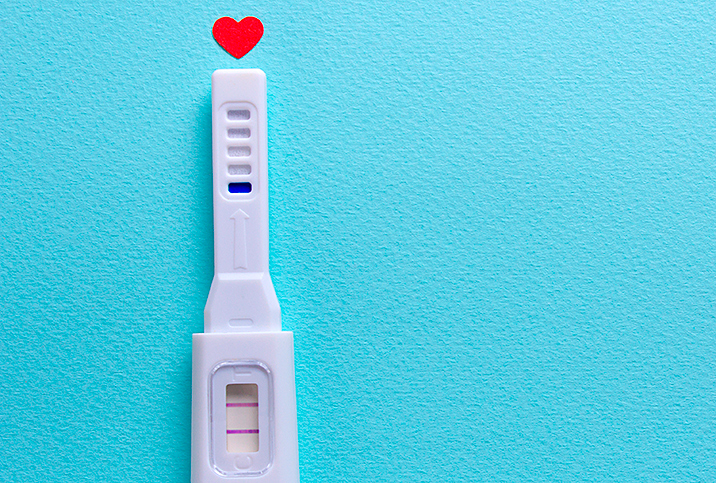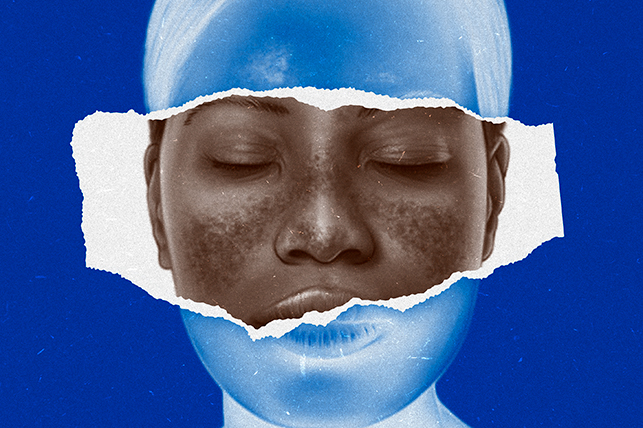How to Manage and Treat Lupus

Lupus is an autoimmune condition that can take years to diagnose. But what happens after you get your diagnosis? Although the disease has no known cure, it's possible to live a normal, healthy life with lupus with the right treatments and lifestyle modifications.
While there are a number of medication options available, many people have also found it useful to use natural medicines. It's also possible to avoid the majority of flare-ups by learning your lupus triggers and how to prevent them.
Here is a guide to getting effective treatment for lupus.
An overview of lupus
Lupus is an autoimmune disease that, like other autoimmune conditions, causes the immune system to mistakenly attack various organs and tissues in the body. It is more common in women, and symptoms typically appear during reproductive years.
"Its effects can be widespread, including but not exclusive to the skin, joints, nervous system, heart, lungs and kidneys," explained Nicole Harris, MB.Ch.B., a general practitioner and the clinical operations manager at Thriva, a provider of at-home blood tests based in London. "It is a chronic disease that can often have periods of relapse, also known as flares, and remissions."
Lupus symptoms include muscle and joint pain, fever, rashes, chest pain, hair loss, sun and/or light sensitivity, kidney problems, mouth sores, prolonged or extreme fatigue, anemia, memory problems, blood clotting and eye disease.
Lupus can affect almost any organ and system in the body. If symptoms are left untreated, it can lead to severe, permanent tissue damage. Eventually, it can even lead to other diseases and health complications, such as heart disease, osteoporosis and kidney disease.
Depending on which bodily system is being affected by lupus, the following complications can arise in the long term:
- Skin scarring
- Joint failure
- Kidney failure
- Stroke
- Heart failure and heart attack
- Pregnancy complications
- Hip destruction
- Cataracts
- Bone fractures
Managing your lupus symptoms
After you receive a lupus diagnosis, your doctor will likely discuss potential treatment options with you. Typically, the first step is to treat and manage the symptoms that arise from lupus. The next step is to become familiar with your triggers so you can minimize how often these symptoms appear.
"Systemic lupus erythematosus can range from mild to severe," Harris said. "The aim of managing lupus is to reduce symptoms, prevent flares and improve long-term quality of life."
Managing lupus on a day-to-day basis is person-specific, so each treatment plan looks slightly different. However, everyone with lupus can make small lifestyle changes of their own that will likely help.
Harris said conservative management, which you can do yourself, includes:
- Using high-factor UVA and UVB sunscreen
- Wearing protective clothing
- Avoiding sun exposure
- Practicing healthy lifestyle measures, such as exercising, eating a healthy diet and not smoking
These tips can help you avoid flare-ups. However, as everyone has different triggers for their lupus flare-ups, you may notice other specific changes to your lifestyle and diet help you reduce flares.
Lupus medication options
In addition to making considered lifestyle changes, managing lupus may involve specific medical treatments and procedures.
While there is no cure for lupus, it can certainly be managed by a team of healthcare professionals, according to Monique May, M.D., M.H.A., a medical advisor for Aeroflow Sleep in North Carolina. This team may include: a rheumatologist, a specialist who treats arthritis and other autoimmune diseases; a primary care physician; a cardiologist (heart specialist); a pulmonologist (lung specialist); a dermatologist (skin specialist); a nephrologist (kidney specialist); a physical therapist; and a dietitian.
Several types of medicines, including pills, injections and creams, can be used to treat lupus.
"They generally work to suppress or calm down the immune system in order to control symptoms and prevent long-term complications," May said.
Typical treatments used in cases of lupus include:
- Nonsteroidal anti-inflammatory drugs (NSAIDs). Medications such as ibuprofen can help with joint pains and inflammation in the body.
- Antimalarials. Drugs such as hydroxychloroquine can be helpful for certain symptoms, including rashes, muscle pain and fatigue, of systemic lupus erythematosus (SLE).
- Corticosteroids. These drugs reduce inflammation and are particularly useful for flare-ups.
- Immunosuppression. Methotrexate, for example, is a drug that helps limit autoimmune impact.
- Biologics. Medications such as rituximab and belimumab can help limit the autoimmune impact.
Natural medicines used to treat lupus
Natural medicine has not been shown to be a proven remedy to help with lupus in the long term, and your doctor will likely recommend a course of medication. However, some people find alternative treatment options helpful for managing symptoms such as pain and inflammation.
"There are a number of alternative therapies, such as herbal remedies, that have been suggested for SLE, however, research is still ongoing, and as far as I am aware, no research to date has shown any benefits to alter management options," Harris noted. "If you decide you want to try them, I would always suggest discussing these with your healthcare provider first as potential interactions with certain medications or conditions may occur."
Natural treatments for lupus and its common symptoms often include the following items:
- Turmeric
- Ginger
- Apple cider vinegar
- Epsom salt
- Green tea
- Omega-3 fatty acids
- Vitamin supplements
- Hypnotherapy
Which treatment option is best for you?
Deciding which treatment option is best for you is very personal as everyone's experience of lupus is different. However, it's important to make the decision with the help of a medical professional who can recommend the best medication for your case.
"You should always work with your healthcare provider when taking any medication for SLE as not all of the options above may be suitable as they are often specific to disease severity," Harris said.
Summing up
Lupus is a chronic autoimmune condition with no cure. However, it's possible to treat your lupus symptoms and avoid flare-ups.
Lupus can affect each individual differently, and the best treatments can also vary. For many people with lupus, a mixture of lifestyle changes and medication helps to reduce flare-ups and prevent long-term damage to the heart, lungs, skin and bones. While lupus is an incurable condition, hopefully, with the right treatment, you may even reach a point where it barely affects you at all.
Editor's note: These statements have not been evaluated by the Food and Drug Administration. Our medical experts advise that you consult your primary healthcare provider before you begin using a supplement. This information is not intended to diagnose, treat, cure or prevent disease.


















